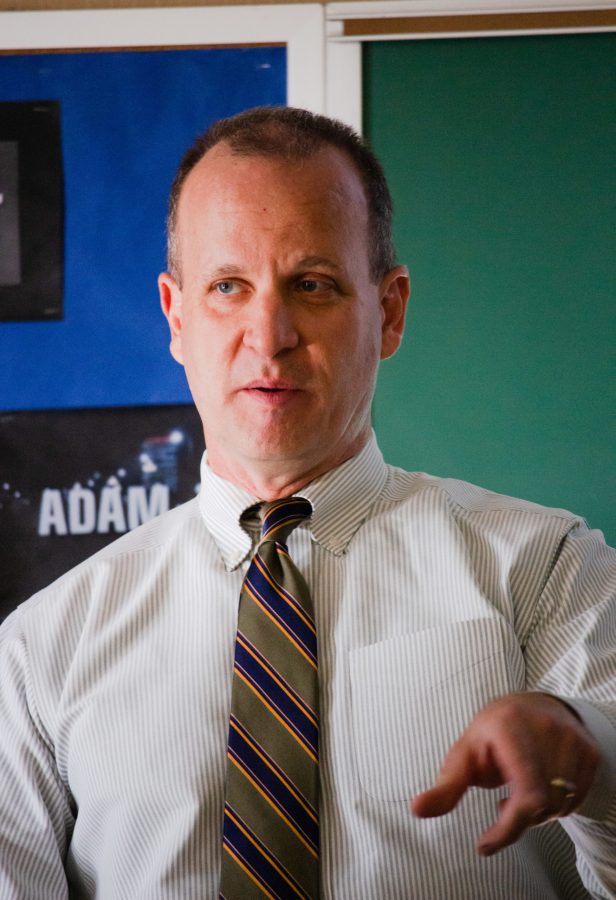Lance Crowe’s favorite part of his job is the variety he experiences. Crowe gets plenty of it between teaching criminal justice classes at Bob Jones University and supervising the dispatchers for public safety.
Crowe graduated from BJU with his undergrad in graphic design. He originally intended to join the Marine Corps but felt led to join law enforcement instead. “I was already working public safety [at the University] at the time, and when I got interested in law enforcement I started treating public safety as a training ground for that,” Crowe said.
Before coming to BJU, Crowe served in law enforcement for 27 years. Crowe worked for the Spartanburg County sheriff’s office for 13 years, and afterward, was chief of the Travelers Rest police department. Crowe retired in September of 2018, finished his master’s degree in criminal justice the next month and came to work for BJU in May of 2019. While Crowe had spoken at law enforcement conferences, he had never taught in a formal setting over a semester.
Crowe teaches class in the mornings and works with public safety in the afternoons. Crowe is one of three police captains on campus. There are also armed staff and unarmed students who work with public safety. When Crowe works for public safety, he oversees the main gate, supervises the dispatchers, oversees parking management and oversees the officer duty schedule.
The dispatchers are at the main entrance 24 hours a day, 7 days a week, screening people who enter and leave campus, answering questions and taking phone calls. They also direct dispatchers to various locations as needed.
Crowe also enjoys the academic side of his job. “I love the teaching,” Crowe said. “I really enjoy mentoring students. [Law enforcement] has been a good career for me and I want to pass that on.” While Crowe’s favorite part of his job is how unpredictable can be, it is also his least favorite thing. “It can be a little bit rough sometimes,” Crowe said.
While Crowe loves teaching, he also has fond memories of seeing his work in law enforcement impact people. While he was in law enforcement, Crowe’s police station was ‘adopted’ by an American Heritage Girls troop, which is similar to Girl Scouts. “We would go to their annual awards ceremony and support them and throughout the year they [would] bring us gifts, food, and encouragement,” Crowe said. “That was always fun.”
“It’s a dangerous time to go into [law enforcement] but I still encourage it,” Crowe said. He said that, aside from the ability to keep oneself physically safe, communication skills are the most important. “Being able to write and speak to people are two of the key needs for justice professionals,” Crowe said. “[Law enforcement] is an excellent field to go into and I highly endorse it. I wouldn’t discourage anybody from going into [law enforcement].”





















































